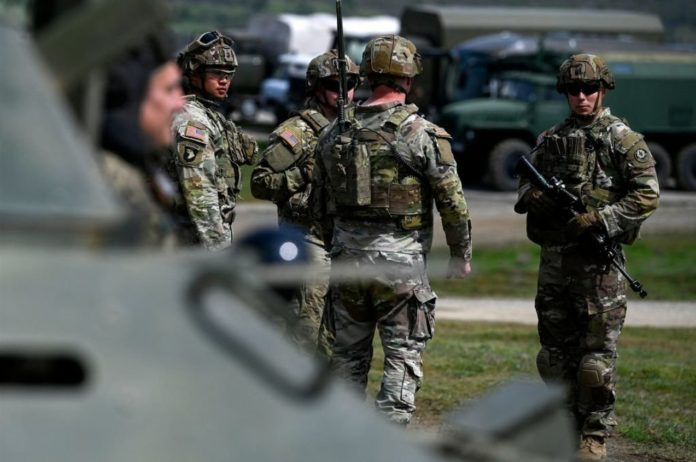The US military is considering a plan to fund tens of thousands of college players with athletic scholarships in exchange for mandatory service.
According to Sportico, the idea, which was introduced by a defense contractor and excludes football and basketball players, has reached military and civilian leaders across the Department of Defense, as well as key members of Congress.
The Scholar-Athlete Intelligence and Leadership Program (SAIL-P) is being marketed as an alternative to the military’s sluggish recruiting process.
According to Eben Novy-Williams and Daniel Libit of Sportico, the armed forces spend billions on recruits who fail basic training, and the proposal’s goal is to alleviate budgetary concerns in collegiate sports, where non-revenue teams like tennis and wrestling are being cut.
The Pentagon proposed a record $773 billion budget for 2023 last month which includes around $1.32 billion in “recruiting and advertising” costs across the Army, Marine Corps, Navy, and Air Force, as well as billions more for basic training of those recruits.
To illustrate a comparison, Sportico’s college financial database shows that 100-plus public FBS institutions spent $653 million on scholarship costs outside of football and basketball in 2020-21.
While some key stakeholders, such as the NCAA and its members, are likely to oppose the initiative, intercollegiate athletics and the Department of Defense would need to rethink their approach to recruiting high school athletes to commit to years of military or alternative civilian service after they finish their education.
Dave Maloney, CEO of Orchestra Macrosystems, a Houston-based software and analytics firm and Air Force contractor, came up with the concept. According to the publication, Maloney, a former Auburn track athlete, presented his concept as a “21st century pathway to service.”
“The Department of Defense just went to Congress with its initial budget for next year. It’s the largest budget ever, and yet we’re seeing a decrease in our technological capabilities, and we’re seeing a decrease in any interest in service,” Maloney said in an interview. “What does that tell you? Talented people don’t want to work at decaying institutions. You’ve got to gut-punch it.”
While the project has gained traction in the Defense Department and other sectors of the government, it has yet to gain traction in collegiate sports, according to the publication. An NCAA representative stated the regulatory body was unaware of the proposed project.
Image Credit: Getty
You were reading: U.S. Military Turns to College Athletes for Recruits
